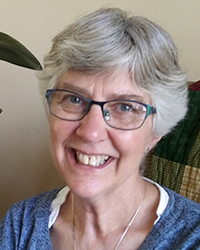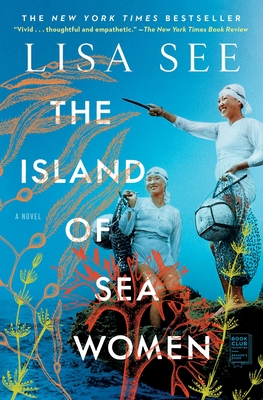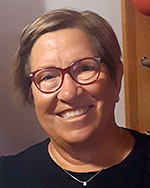|
|
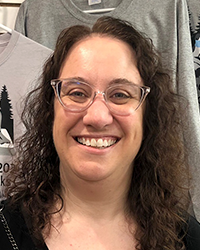 Jen Jen |
 |
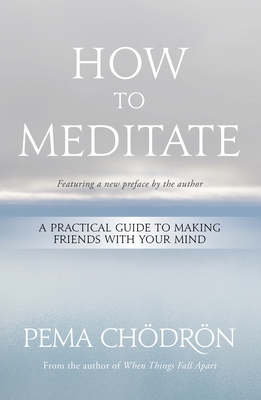
|
|
How to Meditate
Pema Chodron
Yup, I’m back at it, reading another Pema Chodron. Despite it being a short book, it’ll take a while for me to read all the way through it. I tend to do a lot of re-reading as I read Chodron, so as not to miss anything. The title pretty much sums up what the book is about. As usual, my favorite Buddhist nun is gentle, funny, and practical. To my surprise, she recommends meditating with another person when first starting out—sort of the meditation version of a “body buddy” for those who want to be accountable for health/diet practices. To my delight and surprise, when I asked my best friend/husband if he would be my meditation partner he agreed. 
|
| |
|
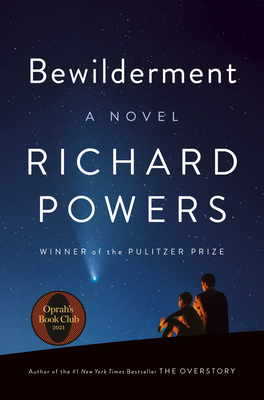 |
|
Bewilderment
Richard Powers
After I finished listening to The Beatryce Prophecy by Kate DiCamillo on libro.fm, I had trouble settling into another audio book (that’s the downside of a really good audio book!) but I’ve found another one that I’ve fallen in love with—Bewilderment by Richard Powers. Theo is a young widower raising Robin, the 9 year old son of Theo and his late wife, Aly. Theo is an astrobiologist. Aly was heavily involved with animal rights while alive. Robin is bright and curious, but he’s having trouble at school and at times he lashes out violently. The school wants to put a label on Robin and see to it that he is put on psychoactive drugs. Theo is resistant to this. The novel is an exploration of Theo’s current attempts to help Robin, alternating with Theo’s thoughts on his marriage. The narration is beautifully written. I recently described this book as “a blend of science and poetry”, but it’s so much more than that—science, love, family, medicine, the human condition, doubts, and love. I highly recommend this one, either as an audiobook (the narrator is spot on) or a print book. |
| |
|
|
|
|
|
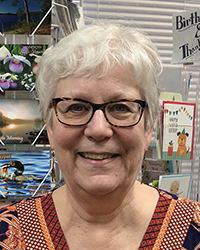 Sally Sally |
|
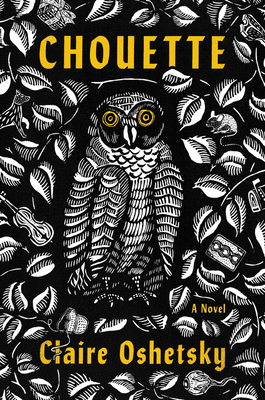
|
 |
Chouette
Claire Oshetsky
When she becomes pregnant, Tiny’s husband is thrilled, and disregards her when she says the baby will be an owl-baby. Their child is indeed an owl-baby. Tiny struggles to best care for her daughter, whom she names Chouette. Her husband is appalled by the child and moves into the room above the garage. Tiny says to Chouette, “But here’s the crux of it, owl-baby. Your father wants to fix you, and I want us to love you as you are.”
The book is wildly imaginative, filled with dark humor and music. It’s a story that will particularly resonate with anyone raising non-conforming children.
The book will be released November 16.
|
| |
|
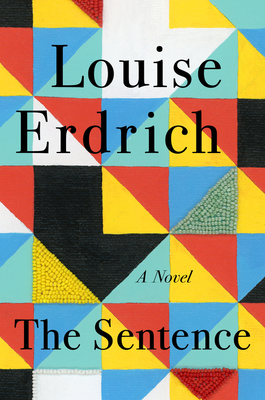
|
|
The Sentence
Louise Erdrich
I own a bookstore, which my daughter and I kept running throughout the lockdown during the pandemic. Minneapolis is my hometown. I watched the civil unrest after George’s Floyd’s death on television.
You can understand then, why I felt Louise Erdrich’s new book, The Sentence, was written for me—a sentiment I share with a legion of independent booksellers, whether or not they’re from Minneapolis.
The book is set in Erdrich’s store, Birchbark Books, and she appears in it from time to time. Here’s my favorite part: “I’m still not strictly rational. How could I be? I sell books!” It authentically shows bookstore life—there’s never quite enough room in the store, getting a PPP loan was instrumental in being able to keep staff during the pandemic; the necessity of pivoting to become a mail order business during the lockdown; the pleasures of being surrounded by books and those who love them; money is a constant worry; the staff complains about the vacuum cleaner.
In The Sentence, Birchbark Books has something Beagle and Wolf Books does not—a ghost. It haunts the store and particularly Tookie, a bookseller with a past, from All Souls’ Day 2019 to 2020, when Tookie finally is able to send the ghost on her way.
The book is unusual, very funny (particularly the first part), full of complicated characters and their complicated relationships with one another. It’s the first novel I’ve encountered that explores both the pandemic and the effect of George’s Floyd’s murder.
It's a timely read by a master storyteller. You won’t want to miss it. |
|
|
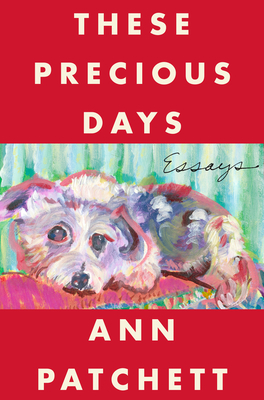 |
|
These Precious Days
Ann Patchett
Ann Patchett does two things in this collection of essays: makes writing them look effortless and makes you feel as though you’re her best friend. (Neither are true.)
The essays are very personal. In "Three Fathers" Patchett explores her relationships with her father and her two stepfathers, revealing the idiosyncrasies of each, but also sharing the richness they contributed to her life. When she stages a photograph of herself with the three of them at her sister’s wedding, one of her stepfathers remarks to her father, “You know what she’s doing, don’t you? She’s going to wait until the three of us are dead and then she’s going to write about us. This is the picture that will run with the piece.” And he was right!
"There Are No Children Here" discusses, at length, her decision not to have children.
The title essay explores life during the lockdown of the pandemic. The emphasis is on the story of the acquaintance, Sooki, whom Ann and Karl, her husband, invited to live with them in their home during this time. Karl had made arrangements for Sooki to be part of a clinical trial for pancreatic cancer in Nashville, where he and Ann live, and Ann felt that Sooki needed the comfort of a home with friends rather than being in a hotel.
Patchett discusses her writing process, her bookstore, her husband and their marriage. Several of the essays were previously printed elsewhere, which didn’t diminish my pleasure at reading them in this book.
Settle down with These Precious Days and a cup of tea, to catch up with an old friend. |
|
| |
|
|
|
|
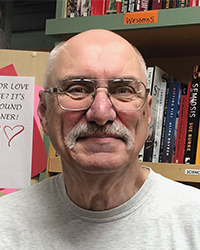
Bob |
|
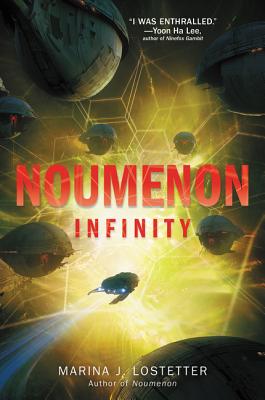
|
|
Noumenon Infinity
Marina Lostetter
Wow, this is really a deep space book. An earth-wide group called Planet United Consortium is sending convoys to different parts of space to further understand what’s out there and take humanity from earth to distant stars and galaxies. The crew is a bold assemblage of people who understand that to travel lightyears away, it’s going to take numerous generations of clones of themselves. But these are true explorers and they understand the sacrifice and potential benefits of scientific discovery. The book takes you through some of the different convoy’s travels. Some of them make” jumps” that are thousands of years apart in a split second. Great stuff awaits, including an enormous alien structure that surrounds a star (Dyson Sphere maybe?) The book is over 500 pages but keeps your interest, despite names and places that are impossible to pronounce.
|
|
|

Gail |
|
|
|
|
| |
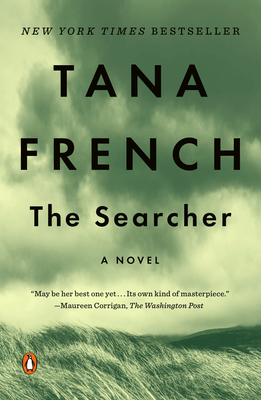 |
|
The Searcher
Tanya French
Cal Hooper, an ex-cop from Chicago, moves to a small village in Ireland to live the good life. He plans to spend his time fishing and fixing up his cottage. That all changes when a kid knocks at his door, asking Cal to find his older brother. The police don't want to get involved and, against his better judgment, Cal agrees to help. He soon finds that the quiet village has lots of secrets and people aren't what they seem. A mystery that will hold you in suspense until the end. |
| |
|
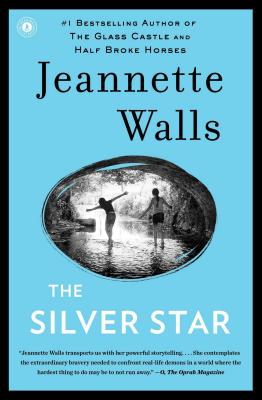 |
|
The Silver Star
Jeannette Walls 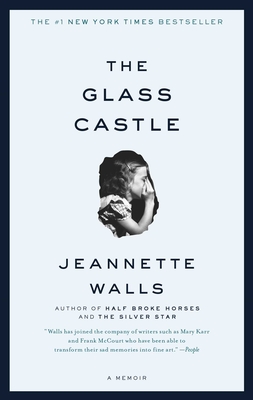 This is another great book by the author of The Glass Castle. Liz is 15, and Bean (rhymes with Jean) is 12. Their mother Charlotte takes off, leaving them money to buy their favorite chicken pot pies.When the money starts to run low and she hasn't returned, they decide to ride the bus from California to their Uncle Tinsley’s in Virginia. The girls meet more relatives and find out why their mother is the way she is. They decide they need to earn their own money to buy what they need when school starts. Then something happens to Liz! I believe I enjoyed this story more than The Glass Castle. It's packed with excitement from beginning to end. This is another great book by the author of The Glass Castle. Liz is 15, and Bean (rhymes with Jean) is 12. Their mother Charlotte takes off, leaving them money to buy their favorite chicken pot pies.When the money starts to run low and she hasn't returned, they decide to ride the bus from California to their Uncle Tinsley’s in Virginia. The girls meet more relatives and find out why their mother is the way she is. They decide they need to earn their own money to buy what they need when school starts. Then something happens to Liz! I believe I enjoyed this story more than The Glass Castle. It's packed with excitement from beginning to end.
|
| |
|
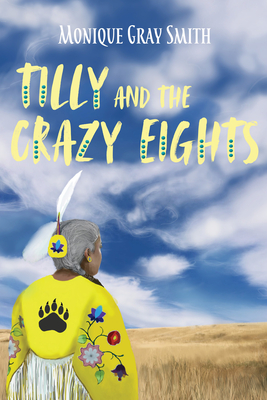
|
|
Tilly and the Crazy Eights
Monique Tray Smith
When Tilly receives an invitation to help drive eight Native American Elders on their ultimate bucket list road trip, she impulsively says yes. The adventure will transform her and the elders, who soon dub themselves "the Crazy Eights,” in ways they would never have predicted. Each one chooses a stop that they've always wanted to experience on their way to the final goal, the Gathering of Nations Pow Wow in Albuquerque. This is both a fun book and serious. Along the way you will learn what makes Native Americans tick. |
| |
|
|
|
|
|
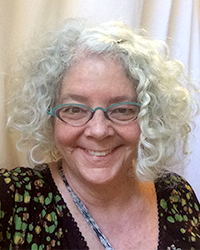
Hannah |
|
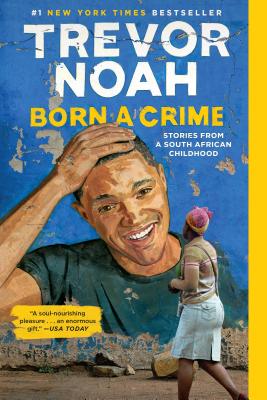
|
|
Born a Crime
Trevor Noah
What a richness! Noah was the son of a secretive Swiss/German father and an extraordinary Xhosa mother who defied her preordained role in life, bringing him into every possible aspect of South African’s complex world. He was born during apartheid so of course couldn’t be seen to be his father’s son, but he also couldn’t be seen as his mother’s son in many situations. Noah makes it clear how the colonizers pitted Black and “colored” communities against each other. He was always an outsider growing up, but his facility with languages, the values instilled by his mother and the education she enabled him to have, and his ability to make others laugh allowed him to survive and eventually flourish. His memoir brings you vividly into his childhood and teen years, opening your eyes as you have a most enjoyable read. |
| |
|
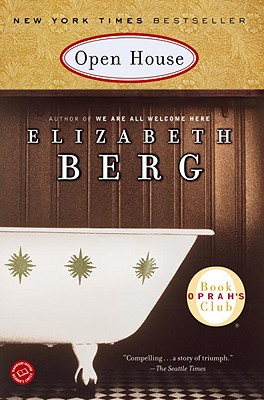
|
|
Open House
Elizabeth Berg
This is the novel that Oprah chose for her book club, an honor that brought Berg to the attention of millions and cementing her career as a writer. It’s about a woman whose husband is divorcing her against her will. Berg says the genesis of the story was that she wanted to write about a suburban woman who opens her house to lodgers. She wishes she could open everyone’s house from the roof like a doll’s house and see the lives of the people inside. Berg always writes about “ordinary” people. She says she finds us fascinating. Most of her readers are women, but she’s hearing more from men. Her writing is very readable, and her characters are relatable. I particularly recommend this to anyone who has been through a difficult divorce.
|
| |
|
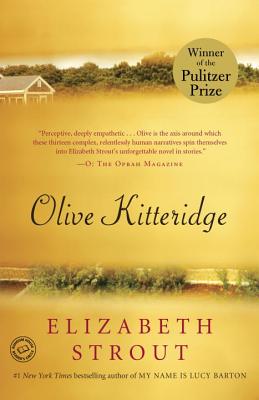
|
|
Olive Kitteridge
Elizabeth Strout
This novel won a well-deserved Pulitzer Prize. Each chapter is a different story about the people in a small town in Maine. Because the point of view varies, we get introduced to different perspectives about Olive. She’s a force, a woman who has both positive and negative effects on others, a complicated woman in a town full of richly developed characters. Some stories center on her, but in one she’s just seen at a distance in a concert audience.
I’m not reviewing the book I read before this because I don’t recommend it. It’s by a major, best-selling author but his books have become formulaic. I didn’t care about any of the characters in it. Then I picked up Olive Kitteridge and was knocked over by the contrast. When things went wrong for the people in this book my heart was broken, when things were happy or just hopeful, I was inspired.
Sometimes when I’m down on myself, feeling bad about my many imperfections, I am soothed by asking myself whether I would like a character like me in a novel. I want that hypothetical novel to be written by Elizabeth Strout.
I wish I read this before Olive Again, if I’d only known… Oh well, I'm glad I read them both. |
|
|
| |
|
|
|
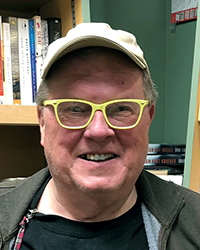
Tim
|
|
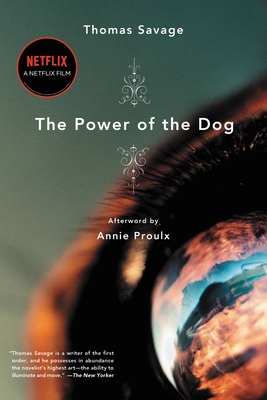
|
|
Power of the Dog
Thomas Savage
Power of the Dog is soon to be a feature film on Netflix, which will acquaint contemporary readers with Thomas Savage’s work. Born in Salt Lake City in 1915, he was one of America’s best writers of ‘American Landscape Fiction’ (writing having a real sense of place) in the first half of the twentieth century.
The novel is set in rural Montana in 1920 in a small cattle town. One vast ranch has exerted a dominant influence on the town for a couple of generations. Two brothers, Phil and George, run the operation. George takes care of the business and accounting, while Phil has to do with the more “active” running of the ranch. Phil is a man’s man, most comfortable in the ideology of a rough and tumble, no nonsense cattleman’s ethic, grounded and intimately tied to the land, its seasons and the stark necessities of life on the range. George is of a different temperament. Seeking a less austere life for himself, he marries a young widow who has a teenage son. The novel is about relationships, how they change us, and who might be the most practical about the necessary means to cope. There are surprises!
As a bonus, Annie Proulx (author of The Shipping News) writes an afterword that is in itself brilliantly engaging and instructive. Here’s an opportunity to read a story that is going to become a much talked about film, before you see the film. Think about it.
|
| |
|
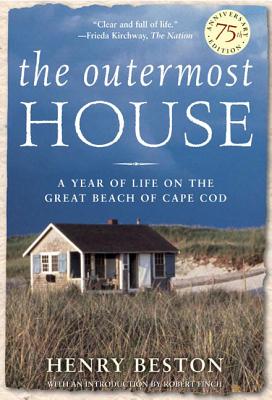
|
|
The Outermost House
Henry Beston
This book was recommended to me by a friend and as I began reading it, I found myself stumped as to how to make sense of it. Luckily, I had just read the Annie Proulx’s afterword to Power of the Dog, so I was able to recognize it as American Landscape Fiction at its very best. Henry Beston spends a year in a small clapboard house on the then undeveloped Great Beach of Cape Cod, Massachusetts, the easternmost dunes of North America’s Coast. He describes vividly a year of sun, sand, birds of passage, vegetation, changing seasons, and fierce North Atlantic storms. The book was written one hundred years ago, allowing readers to experience Cape Cod before its urbanization. If you enjoyed the descriptions of ‘atmosphere and landscape’ in Leif Enger’s Virgil Wander and Delia Owens Where the Crawdads Sing, you might give The Outermost House a read. It’s not a novel, maybe more of a thoughtful observational journal.
|
|
|
Guest Reviewer
Myriam J. A. Chancy
What Storm, What Thunder was released last month. On publication day, the publisher, Tin House, released these words of reflection by the author, Myriam J. A. Chancy. We include them here with the permission of Tin House.
|
|
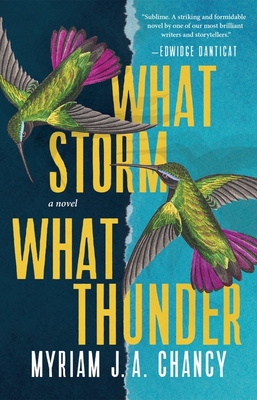 |
|
What Storm, What Thunder
Myram J.A. Chancy
As you may know, What Storm, What Thunder is based on the very real historical events of the earthquake that hit Haiti on January 12, 2010. It killed upwards of 250,000 people, injured about 300,000 more, and left at least 1.5 million homeless. Even today, in 2021, there are still thousands of individuals in internally displaced peoples’ camps. That number has only increased with the most recent earthquake on August 14, resulting in more than a million people affected in Haiti’s southern peninsula. So, it’s bittersweet for me that a novel I wrote to reflect on a historical event with ongoing consequences from over ten years ago is still topical today.
The story I tell in this novel is of the 2010 earthquake, and I tell it in ten voices, voices that I hope reflects something of the experience of the thousands who were affected, many of whom will never be remembered by name. If these ten voices can serve to personalize the events, to serve as witness to them, to humanize the catastrophe, then my work as a writer has been successful. I tell the story of the earthquake from the point of view of individuals from three family groups, interconnected in various ways. There are people from every generation, from every walk of life, from Ma Lou in her seventies to a young boy, eleven years of age, named Jonas. My effort was to create an intimate encounter between you and the characters who went through the earthquake—not all of them surviving.
I strongly, strongly believe that fiction can provide a way for us to imagine the lives of others, to imagine ourselves in their shoes. At least, this is what I hope my novel will do for you: to experience Haiti as if you were on the ground, or even if outside of it, as someone intimately familiar with its workings.
|
|
Would you like to be a guest reviewer?
Email Sally at sally@beagleandwolf.com |
| |
|
|
|
|
|
— page top —
|
|

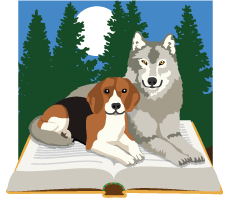

 Jen
Jen

 Sally
Sally







 This is another great book by the author of The Glass Castle. Liz is 15, and Bean (rhymes with Jean) is 12. Their mother Charlotte takes off, leaving them money to buy their favorite chicken pot pies.When the money starts to run low and she hasn't returned, they decide to ride the bus from California to their Uncle Tinsley’s in Virginia. The girls meet more relatives and find out why their mother is the way she is. They decide they need to earn their own money to buy what they need when school starts. Then something happens to Liz! I believe I enjoyed this story more than The Glass Castle. It's packed with excitement from beginning to end.
This is another great book by the author of The Glass Castle. Liz is 15, and Bean (rhymes with Jean) is 12. Their mother Charlotte takes off, leaving them money to buy their favorite chicken pot pies.When the money starts to run low and she hasn't returned, they decide to ride the bus from California to their Uncle Tinsley’s in Virginia. The girls meet more relatives and find out why their mother is the way she is. They decide they need to earn their own money to buy what they need when school starts. Then something happens to Liz! I believe I enjoyed this story more than The Glass Castle. It's packed with excitement from beginning to end.









